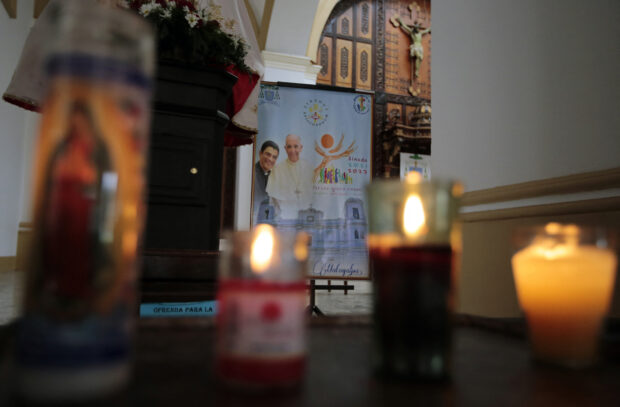Nicaragua weighs cutting diplomatic ties with the Vatican

In this file photo taken on August 06, 2022 a banner with a picture of Monsignor Rolando Alvarez (L) and Pope Francisco (R) is seen at the Matagalpa Cathedral in Matagalpa, Nicaragua. AFP
MANAGUA — Nicaragua on Sunday said it was considering suspending diplomatic ties with the Vatican, after Pope Francis days earlier called the Central American country’s government a “crude dictatorship.”
“Between the Republic of Nicaragua and the Vatican, we propose a suspension of diplomatic relations,” a statement from the Ministry of Foreign Affairs said, “given the information that has been divulged by sources apparently close to the Catholic Church.”
The ministry statement did not directly reference Francis’ comments in the Friday interview with Argentine news outlet Infobae, during which the pontiff also called Nicaraguan President Daniel Ortega “unbalanced.”
The interview came days after the government last week shuttered two universities with ties to the Roman Catholic Church.
The schools, which have campuses in several cities, had their legal status cancelled for alleged contraventions of the law, according to the government.
Article continues after this advertisementThe institutions were ordered to hand over all information on students, professors, study plans and other details to the country’s National Council of Universities (CNU), according to an official government register.
Article continues after this advertisementThe universities’ thousands of students will be integrated into other CNU-approved institutions and all university property will be transferred to the state.
That was the latest move in ongoing friction between the Church and Ortega’s government, which include the sentencing of Bishop Rolando Alvarez — an outspoken critic of what he called restrictions on religious freedom under Ortega — to 26 years in prison.
He refused to be deported to the United States with more than 200 other political opponents last month.
The pontiff referenced but did not mention Alvarez by name in the Infobae interview, during which he also compared the situation in Nicaragua to the rise of communism in the 1917 Russian Revolution and to Nazi Germany in the 1930s.
Since anti-government protests were violently put down in 2018, leaving more than 350 dead, hundreds imprisoned and more than 100,000 in exile, rights groups, the United Nations and Western governments have accused Ortega’s government of illegally attempting to crush any and all opposition.